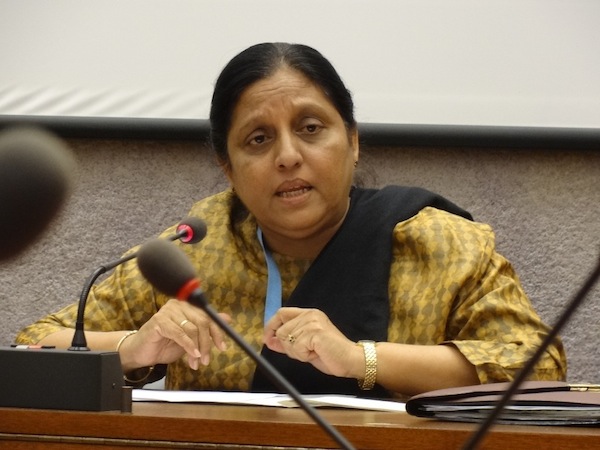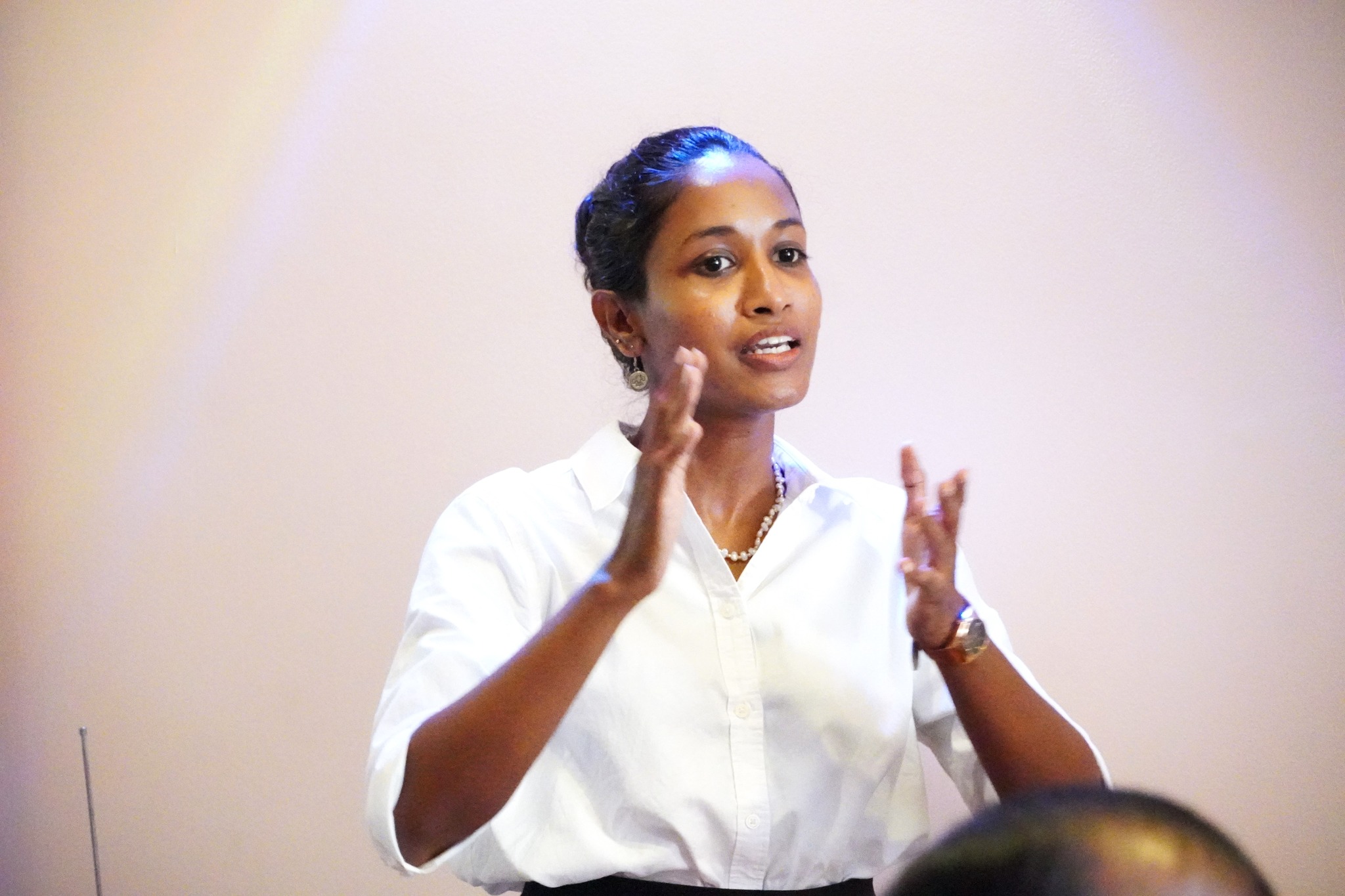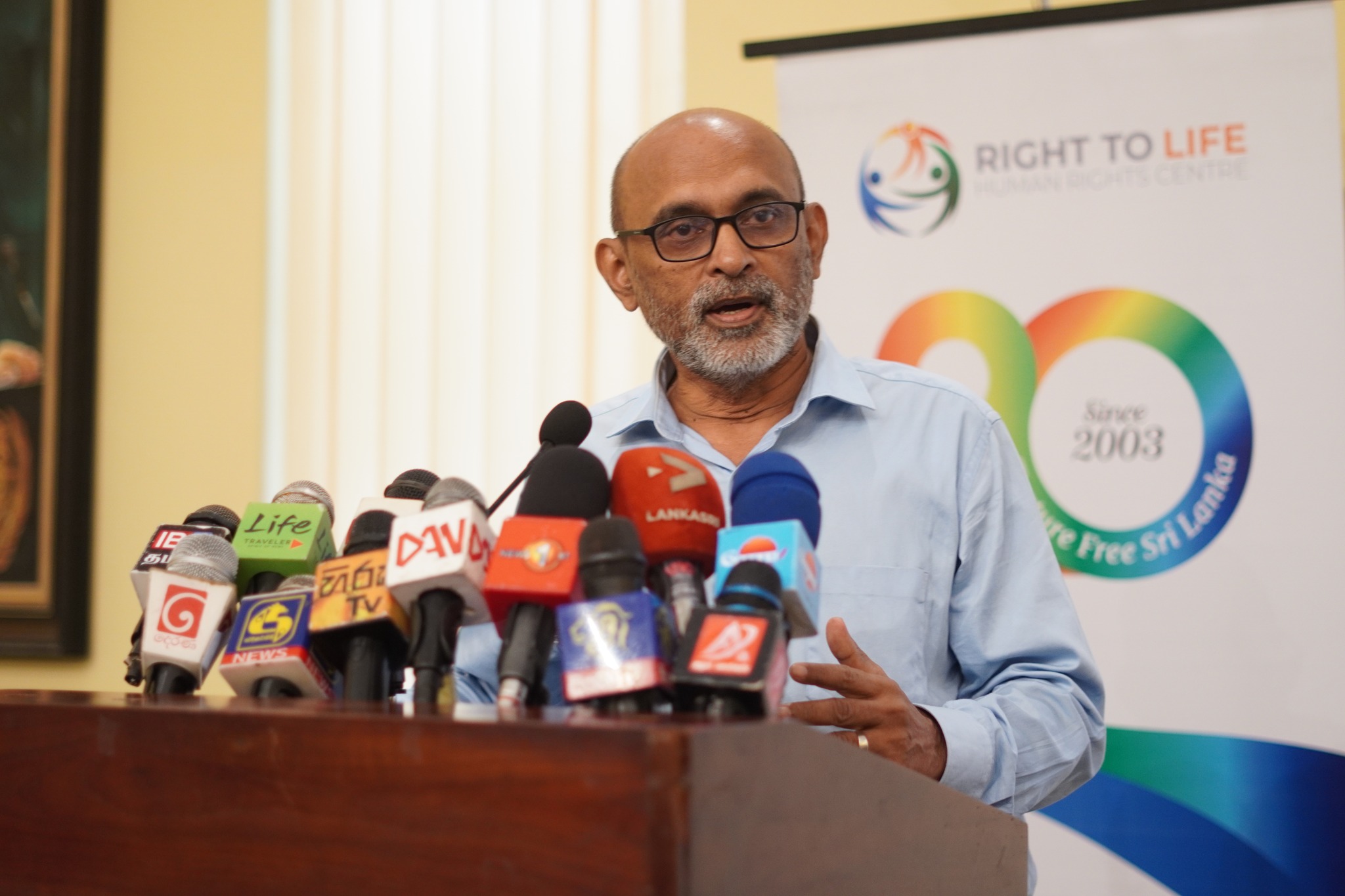 Dr. Nimalka Fernando
Dr. Nimalka Fernando
Background
In 2019, the Ministry of Women and Child Affairs and Social Empowerment initiated the formulation of a National Action Plan on Women, Peace, and Security (WPS) in Sri Lanka. As a signatory to the Convention on the Elimination of All Forms of Discrimination Against Women (CEDAW), Sri Lanka is committed to empowering women at all levels and in all sectors of both private and public life.
On February 27, 2023, the Sri Lankan Cabinet approved its first National Action Plan on Women, Peace, and Security, which will be effective from 2023 to 2027. This plan was developed through a consultative process involving provincial and district-level government officials, civil society, community-based organizations, women leaders, and other stakeholders who have direct experiences with conflicts and crises.
This National Action Plan aligns with the international commitments outlined in the United Nations Security Council Resolution 1325 (2000). It aims to contribute to the legal and policy framework of the country to protect and empower women. It also seeks to strengthen coordination among the various stakeholders involved.
The Importance of the National Action Plan
The National Action Plan on Women, Peace, and Security is crucial for sustainable peace and development in Sri Lanka. With its approval, Sri Lanka is equipped with a policy framework for implementing the WPS agenda. This framework calls for increased participation and representation of women in peacebuilding processes and governance.
The plan targets support for women who have been directly affected by conflicts, violence, and climate-induced insecurities. Additionally, it aims to economically empower women by strengthening their access to equal opportunities and resources, emphasizing women’s entrepreneurship and employment.
Moreover, the plan emphasizes the role of women in leadership related to peacebuilding and conflict prevention.
A Year Later
On International Women’s Day, March 8, 2023, the National Action Plan was ceremoniously launched. President Ranil Wickremesinghe emphasized the plan’s role in expanding women’s rights and declared that Sri Lanka would take a leadership role in advocating for women’s rights in the Asian region.
However, the specific steps taken to make this initiative meaningful remain unclear. As of this writing, the government has gazetted a bill on women’s empowerment. The bill aims to establish mechanisms for women’s empowerment, develop and implement a national policy on women’s development and empowerment, establish a national commission on women, and set up mechanisms to protect women’s rights and prosecute violations.
A debate on these proposed laws and the concept of gender budgeting introduced by the President is essential.
The Situation Women Face
It is globally recognized that the social, political, cultural, and economic challenges faced by women vary not only based on personal experiences but also according to their community, caste, religion, and ethnicity. Similar to how socialism in a single country cannot be achieved, the equality of women cannot be transformed solely by governance. Sri Lankan women are well aware of this.
Despite the significant political strides made by leaders like Sirimavo Bandaranaike and Chandrika Bandaranaike Kumaratunga, Sri Lanka has not seen the necessary legislative reforms to ensure proportional representation and equality for women in parliament.
The UN Security Council adopted Resolution 1325 on October 31, 2000, marking a milestone in recognizing the needs of women in conflict and post-conflict settings and acknowledging their crucial role in peace and security. This resolution encourages states to involve women more in decision-making processes and increase their participation in conflict resolution mechanisms.
The Four Pillars of the Global WPS Agenda
The Women, Peace, and Security agenda is built on four pillars:
- Participation
- Protection
- Prevention
- Relief and Recovery
Supportive UN Security Council Resolutions
In addition to Resolution 1325, several other resolutions further support the WPS agenda:
- Resolution 1820
- Resolution 1888
- Resolution 1889
- Resolution 1960
- Resolution 2106
- Resolution 2122
- Resolution 2242
- Resolution 2467
- Resolution 2493
Legal Framework on Women’s Rights
The Convention on the Elimination of All Forms of Discrimination Against Women (CEDAW) is a crucial international treaty aiming to end discrimination against women.
Meaningful Interventions
It is essential to understand that meaningful interventions based on these UN resolutions and declarations are the responsibility of member states. These documents must form the basis for the future of the 52% female population.
The National Action Plan offers a practical program for implementing what has so far been theoretical discussions and declarations. This plan aims to ensure equality and build a strong ideological foundation for eliminating the challenges women face.
Often, discussions about women start with the victim narrative. It is true that women suffer the most during natural and man-made disasters, conflicts, and upheavals. The 2004 tsunami, the 30-year civil war, and the current economic crisis in Sri Lanka have disproportionately affected women. However, we must recognize that the experiences of disaster and conflict differ between men and women.
Is a Common Solution Possible?
The challenges women face differ based on their ethnicity, class, caste, and religion. Therefore, a one-size-fits-all solution is not appropriate. Even Lenin recognized that slogans like “Let’s fight, let’s change the situation” are not effective ways to achieve women’s rights. The lessons from the Russian Revolution teach us that merely changing the economic system or ending corruption does not guarantee a better world for women. We must understand that equality is not just about securing jobs or economic opportunities. Despite high education levels, many women struggle to achieve top positions due to maternal responsibilities.
Let’s Talk Reality
Women’s rights are closely tied to the political vision of a country. Policies must be built accordingly, and the economy must respond to these needs. Examining the political role of women shows that they often become pawns in a patriarchal framework rather than fighters for their liberation or rights.
Towards a Revolutionary Vision
We must move towards a revolutionary state vision regarding women’s rights and equality. This can only be achieved by feminizing state vision or integrating gender analysis into the economic policy framework.
Making a Difference
- Ensure that the legal system is aligned with international law by amending outdated legal procedures and regulations.
- Guarantee full protection and participation of women in peace and security activities.
- Embed the principle of gender equality in all policies.
- Ensure that equality is practically realized through legal and other relevant measures.
- Prohibit all forms of discrimination against women and take appropriate legal and other measures to address these issues.
Implementing these steps will help build a society where women can enjoy their rights and contribute to sustainable peace and security in Sri Lanka.


